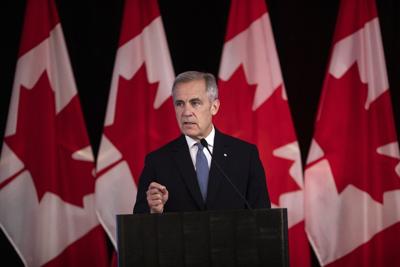OTTAWA - The federal Liberal government is committed to signing pharmacare deals with all provinces and territories, Prime Minister Mark Carney said Thursday, ending months of speculation about the program being cut short.
Carney said those deals would be finalized “as quickly and as equitably as possible.”
“Those are clear commitments and we will keep them,” he said.
The government launched the first phase of the pharmacare program last year, which provides what it calls “universal, single-payer, first-dollar coverage” of contraceptives and some diabetes medications at little or no cost to patients.
The pharmacare law was passed last fall as part of the supply-and-confidence agreement the minority government struck with the NDP.
As a starting point, it required the federal government to negotiate funding deals with provinces and territories to cover those two categories of medications. It also called for a study exploring the best way to create a universal pharmacare program to cover all medications.
Manitoba, B.C., P.E.I. and Yukon are the only jurisdictions to sign deals so far. Those four agreements account for more than 60 per cent of the $1.5 billion set aside in the last budget to get the program up and running.
Earlier this summer, Health Minister Marjorie Michel said the government was “in a new context” and did not commit to negotiating more agreements. The Prime Minister’s Office said the Liberals committed during the election campaign to protecting the existing deals.
Carney’s office at the time refused to say whether the government would negotiate with the remaining provinces and territories.
Pharmacare advocates voiced concern about that lack of commitment and reproductive health advocates warned that a patchwork system would be unfair. Protesters set up outside this week’s Liberal caucus meeting in Edmonton to call on the government to commit to the remaining deals.
At a press conference in Edmonton on Thursday, Carney said the upcoming federal budget will involve some tough choices in order to protect social programs.
“One of the core reasons why we’re taking tough decisions is for affordability and security for Canadians,” he said.
Carney said that includes maintaining the pharmacare, dental care and child care agreements with provinces.
“We have to be in control of federal spending so we can continue to support those programs,” he said.
When pressed to say whether the government is planning to expand pharmacare to the full universal insurance program the Liberals promised in their 2019 election platform, Carney said that “is a different question.”
Parliament is set to resume sitting on Monday and the Liberals intend to introduce a federal budget in October.
The committee of experts tasked with exploring possible models for the universal pharmacare program is set to report to the health minister by Oct. 10. The minister is expected to table the report in Parliament.
This report by The Canadian Press was first published Sept. 11, 2025.
Error! Sorry, there was an error processing your request.
There was a problem with the recaptcha. Please try again.
You may unsubscribe at any time. By signing up, you agree to our and . This site is protected by reCAPTCHA and the Google and apply.
Want more of the latest from us? Sign up for more at our newsletter page.



























To join the conversation set a first and last name in your user profile.
Sign in or register for free to join the Conversation